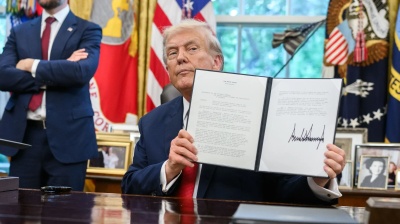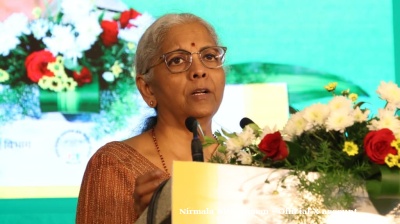Face to face talks held in Antalya, Turkey on March 10 between Russia’s foreign minister Sergey Lavrov and Ukrainian counterpart Dmytro Kuleba brought no apparent progress towards achieving a ceasefire in Ukraine. Instead Lavrov stole the show with a diatribe against the West.
An aggressive Lavrov vowed that Russia would try to never again be dependent on the West, while accusing Ukraine of seeming to want to have meetings for the sake of meetings. Claiming that Russia’s property rights have been stamped on, Lavrov, speaking at a press conference after the talks, said of the Kremlin’s mounting economic problems in the face of sanctions and other economic responses to the Ukraine invasion: "We will cope with them—we have coped with difficulties at all junctures of our history."
Russia, asserted Lavrov, would "come out of the crisis with a better psychology and conscience".
"We have no illusions the West can be a reliable partner," he continued, adding that it would "betray whoever, and will betray its own values".
"I assure you we will cope and will do everything not to rely on the West ever, in any areas of our lives," added Lavrov, for good measure.
Lavrov also reiterated Moscow’s contention that Ukraine was "turning into anti-Russia" over many years, adding: "Ukraine was being turned into a pro-Western experimental tool."
Reporters challenged Lavrov on how Russia could justify the bombing of a maternity ward and children's hospital in Mariupol, Ukraine that shocked the world on March 9. Russia’s top diplomat responded that this was "not the first time we see pathetic outcries concerning the so-called atrocities perpetrated by the Russian military".
He claimed that the Russian delegation told the UN security council three days ago that the hospital had been "taken over" by Ukrainian radicals. "All the mothers and nurses were chased out of there", went on Lavrov, alleging public opinion was being manipulated worldwide.
No evidence has been presented by Russia that the hospital was taken over by radicals.
Making further claims, Lavrov said the Pentagon was “in deep secrecy” using Ukrainian territory to develop pathogens that could be used to create biological weapons. The US has described such claims as "preposterous".
The West, added Lavrov, was "acting dangerously" by supplying weapons to Ukraine. It amounted, he said, to a breach of "all of their so-called principles and values".
Asked if Russia had any plans to attack other countries, Lavrov said it did not. He then repeated the curious Russian position that it has not attacked Ukraine.
Top Ukrainian diplomat Kuleba told media that there were two tasks that needed prioritising; organising a humanitarian corridor from Mariupol and reaching a 24-hour ceasefire.
He said he hoped Lavrov would communicate with decision-makers in the Kremlin to enable the humanitarian corridor to start working.
The war, said Kuleba, could not be stopped if Russia had no desire to stop it.
He added that he would be ready to meet again with Lavrov "in this format if there are prospects for a substantial discussion and seeking solutions".
Kuleba added: "I'm ready to continue this engagement with the purpose of ending the war in Ukraine, stopping the suffering of Ukrainian civilians and liberating our territories from the Russian occupying force."
Turkish Foreign Minister Mevlut Cavusoglu said the talks were “an important start”.
"Miracles should not be expected in one meeting”, Turkish media reported Cavusoglu as saying.
The discussions were the first high-level contact between Kyiv and Moscow since Russia's invasion of Ukraine on 24 February. "Despite all the difficulties, I can say that a civilised meeting took place," Cavusoglu reportedly added.
News

Trump authorises CIA covert operations in Venezuela to topple Maduro
The White House has acknowledged granting the Central Intelligence Agency sweeping powers to conduct covert operations aimed at unseating President Nicolás Maduro, the NYT reported.

India’s finance minister to miss upcoming IMF and World Bank meetings
India’s Finance Minister Nirmala Sitharaman will not attend this week’s annual meetings of the International Monetary Fund and World Bank in Washington, as trade negotiations between New Delhi and Washington remain unresolved.

Young Ukrainians asylum seekers fleeing the war for Germany surges
The number of young Ukrainian fleeing the war and seeking asylum in Germany has surged, following Ukraine’s decision to partially lift its travel ban for men aged 18 to 22, according to figures from the German Interior Ministry.

US may double support for Argentina to $40bn conditional on policy reforms
Washington buys Argentine pesos and mulls creating a new private sector-led $20bn debt facility, which would bring total support to $40bn with the existing swap line, Treasury Secretary Bessent said.

_Cropped.jpg)

